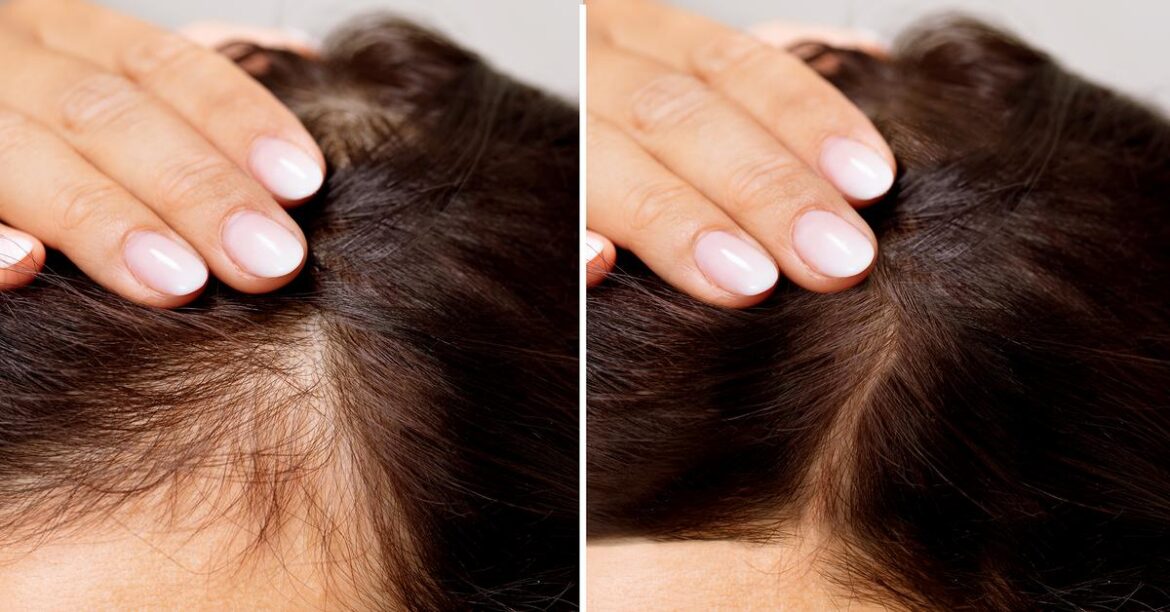Does Berberine Cause Hair Loss? Uncovering the Truth Behind This Popular Supplement
Berberine is a natural compound derived from several plants, including goldenseal and barberry. It has gained popularity for its numerous health benefits, particularly in managing insulin resistance and supporting metabolic health. However, concerns have arisen regarding the potential side effect of hair loss associated with berberine supplementation. In this article, we will delve into the evidence surrounding this issue and provide practical insights for those considering berberine.
Background on Berberine
Berberine is known for its anti-inflammatory, antioxidant, and antimicrobial properties. It activates AMP-activated protein kinase (AMPK), a key regulator of energy metabolism, which plays a crucial role in conditions like insulin resistance (1). Commonly, berberine is utilized to treat gastrointestinal issues, regulate blood sugar levels, and support cardiovascular health (2).
Hair Loss and Supplements: Understanding the Connection
Supplements can affect hair health through various mechanisms, including hormonal changes and oxidative stress. Common side effects associated with supplements may include hormonal imbalances or nutrient deficiencies, which could potentially harm hair health (3). Understanding these connections is essential for anyone considering berberine for its health benefits.
Current Evidence on Berberine and Hair Loss
Currently, there is no conclusive evidence directly linking berberine to hair loss. In fact, some studies suggest that berberine may support hair health through its antioxidant and anti-inflammatory effects (4). Emerging research indicates that berberine could potentially enhance cell cycle regulation and promote hair growth via the Wnt/β-catenin pathway (5). This suggests that rather than causing hair loss, berberine might actually benefit hair health.
Case Studies and User Experiences
User testimonials regarding hair loss while taking berberine vary widely. Some individuals report experiencing hair shedding, while others note improvements in hair thickness and growth. It is important to consider both anecdotal evidence and clinical data when evaluating the effects of berberine on hair health (6).
Hormonal Interactions and Hair Health
Berberine may interact with hormones such as dihydrotestosterone (DHT), which is linked to androgenetic alopecia. By potentially regulating hormonal imbalances, berberine could support hair growth and health (7). Maintaining hormonal balance is crucial for overall hair health, and berberine’s effects on hormone regulation may be beneficial.
Dosage Recommendations for Safety
The typical dosage of berberine ranges from 250 to 500 mg, taken two to three times daily (3). There is no specific evidence linking this dosage to hair loss, suggesting that berberine can be safely used without significant risk to hair health when taken appropriately.
Berberine and Specific Populations
In individuals with polycystic ovary syndrome (PCOS), berberine may help address comorbidities linked to hair loss by improving insulin sensitivity and hormonal balance (4). Understanding how berberine affects different populations is essential for tailoring its use effectively.
Alternatives and Additional Considerations
For those concerned about hair loss, other supplements such as biotin or vitamin D can support hair growth. It is crucial to monitor hair health while using any supplement, including berberine (6). Implementing a holistic approach to hair care can help mitigate any potential side effects.
Conclusion
In summary, while concerns about berberine causing hair loss exist, current evidence does not support a direct link. Instead, berberine may offer benefits for hair health through its antioxidant and anti-inflammatory properties. As with any supplement, it is important to use berberine safely and to consult with a healthcare provider, especially if you have underlying health conditions or are taking other medications.
FAQ Section
- I’ve recently started taking berberine for insulin resistance, but I’ve noticed some hair shedding – is this a common side effect?
- Can berberine help reduce androgenetic alopecia (male/female pattern baldness)?
- What are the long-term effects of berberine on hair health if used continuously for several years?
- Is there a specific dosage of berberine that’s safe for general use without risking hair loss?
- How does berberine interact with hormones like DHT in relation to hair loss?
- Does berberine cause hair loss in individuals with polycystic ovary syndrome (PCOS)?
- Can berberine enhance hair growth or just reduce shedding?
- What are the most reliable ways to monitor hair health while taking berberine to avoid potential hair loss?
- Can berberine be used alongside other hair growth supplements without adverse effects?
- Are there any user reviews or studies showing significant hair loss from berberine use that I should be aware of?


References
- PubMed. “Berberine: A Natural Plant Product Activates AMPK.” Available at: https://diabetesjournals.org/diabetes/article/55/8/2256/12348/Berberine-a-Natural-Plant-Product-Activates-AMP. Accessed on March 13, 2025.
- Natural Medicine Journal. “Clinical Applications of Berberine.” Available at: https://www.naturalmedicinejournal.com/journal/clinical-applications-berberine. Accessed on March 13, 2025.
- Vinatura. “Does Berberine Cause Hair Loss?” Available at: https://www.vinatura.store/blogs/articles/does-berberine-cause-hair-loss. Accessed on March 13, 2025.
- Kopelman Hair. “Berberine and Hair Loss.” Available at: https://kopelmanhair.com/blog/berberine-and-hair-loss/. Accessed on March 13, 2025.
- Tess Med. “Does Berberine Help with Hair Loss?” Available at: https://insights.tessmed.com/does-berberine-help-with-hair-loss-tsr/. Accessed on March 13, 2025.
- Papers SSRN. “Exploring the Effects of Berberine.” Available at: https://papers.ssrn.com/sol3/papers.cfm?abstract_id=5111231. Accessed on March 13, 2025.
- PMC. “Berberine’s Role in Hair Health.” Available at: https://pmc.ncbi.nlm.nih.gov/articles/PMC8874997/. Accessed on March 13, 2025.

